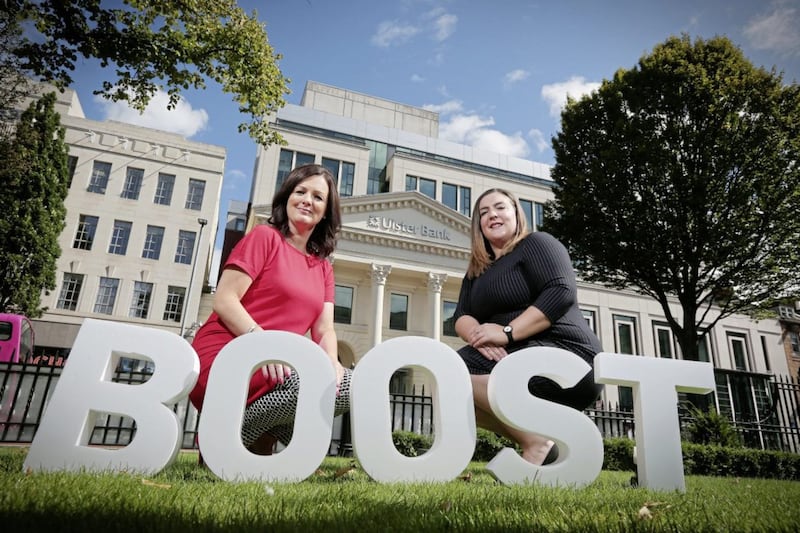YOU might know it as the cheap energy drink on the shelves in your local shop, but a little known fact is that Boost is now the most popular soft drink within the Northern Ireland retail convenience sector.
Outselling the likes of Coca Cola, Pepsi and even water within its market, which strategically excludes the big supermarkets, such as Asda, Tesco, Sainsbury's and Lidl, Boost has grown exponentially since its inception almost two decades ago.
Founded by Simon Gray in 2001, its distinctive branding can now be found across Europe, America and even as far as Qatar and Afghanistan, but curiously it is Northern Ireland where the drink excels.
"To put it into context the Northern Irish market probably accounts for between 15 to 20 per cent of our overall business," Mr Gray told The Irish News.
"It was a surprise in the early days, but it turns out the Northern Irish consumers are the second largest consumers of energy drinks per litre anywhere in Europe. Don’t ask me why they are, that’s just what they’re doing. I think it’s a very tight marketplace, a lot of people know each other, brands can get a head of steam quite quickly, friends are all talking and word spreads. "
"Overall our brand will sit number three energy drink brand in the UK convenience sector behind Red Bull and Monster, but it will be number one over here because of the scale of what we do in Northern Ireland," he said.
The company sells roughly 20 million units a year in the north across its range, which includes energy drinks, protein shakes and isotonic sports drinks. Expected to announce turnover of over £30 million for 2017, Boost has come a long way from the start-up created by a university graduate in Leeds, who saw a gap in the market for an affordable energy drink.
"I set up a small food wholesale business originally when I first came out of university," Mr Gray explained.
"I was a Red Bull drinker at uni so I got exposed to energy drinks when they were first coming around and so I approached a soft drinks manufacturer and said I was looking to trademark a brand and asked how do you feel about packing this product for us. That was probably the little bit of luck you need along the way, because I guess their other clients were Tesco, Morrisons and Sainsbury’s. So the fact they gave an independent start-up a break was great."
"I think we had some real points of differences to start with. Price was always a massive one. We started out in 2001 with a lot of what I would call savvy value brands such as Primark in clothing, Ryanair, all these kinds of brands, which were built for the recession. So when the world kind of hit the wall in 2008/2009, brands like ourselves really kicked on and got a lot more attention and focus. And really that savvy shopper has never really looked back since then."
The company counts Northern Ireland as one of its key markets and looking ahead hopes to not only grow its stockists, but increase the range of its product in existing stores. To that end Boost, which is celebrating 15 years in the north, has just announced a new five-year distribution agreement with Co Antrim-based Hardy Sales and Marketing, which will see a staggering 150 million cans and bottles of Boost, worth approximately £75 million, distributed across the north.
"Belfast and London are probably two of our hottest areas in terms of stores, range, everything going on and while we have national distribution across the UK the sheer penetration of stores in London and Belfast is huge. There will be a few pockets (in Northern Ireland) where we’re not, but principally we’ll be in the high 90s in terms of the number of stores that have something from us. In terms of the number of stores that have quite a range that’ll be pretty high, there’s usually six, seven different products in a store so it’s very significant for us. In terms of what we do over here it has taken years to build. It didn’t look like this from day one, but working with trade partners has been the key. We have had to build it almost store by store, wholesaler by wholesaler and that does take time."
"Ultimately our job is to get products onto consumer’s shopping lists via retail stores so it’s very much full steam ahead in terms of what we do, there’s lots of opportunities to get after," he added.







